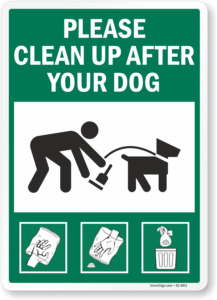Understanding Storm Water Pollution
Environmental Protection Agency webpage
PA Department of Environmental Protection webpage
Identifying Storm Water Pollution
Manor Township’s Illicit Discharge Informational Brochure
Documents
Homeowner’s Guide; Backyard Lawn; Stream Maintenance; MS4 Brochure
Preventing Storm Water Pollution
Here are some important measures you can take to help prevent stormwater pollution:
- Properly dispose of hazardous substances such as used oil, cleaning supplies, and paint. Never pour them down any part of the storm sewer system and report anyone who does.
- Be cautious with pesticides, fertilizers, and herbicides and utilize them properly and efficiently to prevent excess runoff.
- Look for signs of soil, debris, and/or chemicals leaving construction sites via stormwater runoff or by being tracked onto roads by construction vehicles.
- Install innovative stormwater practices on residential property, such as rain barrels or rain gardens, that capture stormwater and keep it on site instead of letting it drain away into the storm sewer system. Check out this link for the Homeowners Guide to Storm Water.
- Implement indoor storage measures for materials that could potentially pollute stormwater and use proper containers (that do not rust or leak) for any outdoor storage to eliminate exposure of materials to stormwater.
- Report any discharges from a stormwater outfall location during times of dry weather.
- Pick up after pets and dispose of their waste properly. No matter where pets make a mess, in a backyard or at the park, stormwater runoff can carry pet waste from land to the storm sewer system, and ultimately to a stream.
- Properly dispose of swimming pool water by draining the water into the sanitary sewer system. Pool water should not be drained into any stormwater facility.
Water Cycle Terms
Learn more about Water Cycle Terms
Healthy Lawns = Healthy Water

Keeping your lawn healthy is very important to keeping the Chesapeake Bay Watershed clean. The Chesapeake Bay Foundation is committed to saving this national treasure and offers many suggestions on what you can do to help. Read their Guide to Effective Lawn Care to learn more.
Pet Waste and Stormwater

Pet waste is a health risk to pets, people, and especially children. Pet waste is full of bacteria that if not properly disposed of can end up in our streams, lakes, and rivers. The bacteria can ultimately end up in our fish and aquatic life. The pathogens in pet waste can lead to a high biological oxygen demand in our streams and rivers causing algal blooms that deplete oxygen from the water and deprive aquatic life making it difficult to survive.
What can you do?
- Pick up your pet waste and place in a plastic bag. Ensure the bag is tied shut and disposed of properly.
- Clean up pet waste from your yard and dispose of it properly. Pet waste is NOT a fertilizer.
- Avoid walking your pet near streams and waterways.
We love our animals but we must take responsibility for the waste they generate. Be proactive in protecting our environment! Pick up after your pet and dispose of the waste properly to make a positive impact on water quality in Manor Township.
For more information on pet waste and what you can do to protect the environment visit: www.epa.gov/nutrientpollution
Best Management Practices (BMPs)
Best Management Practices include designed stormwater management systems as well as non-engineered facilities like keeping areas as open spaces for stormwater management.
The goal of BMPs is to reduce the impact of development and impervious cover on downstream properties, streams, and lakes by:
- Minimizing runoff
- Slowing down runoff
- Runoff Infiltration and filtering
- Evapotranspiration of runoff (Vegetation)
Some examples of BMPs include:
- Rain Gardens (Bioretention Areas)
- Infiltration Trenches
- Pervious Pavement
- Vegetated Swales
If you have a BMP on your property you are required to make sure that it is functioning properly. This includes yearly inspections and maintenance of the BMP. Manor Township will complete regular inspections of BMPs as required by the Clean Water Act. A guide for BMP maintenance is included below.
Retention Detention Basins Brochure
If you would like to make a formal complaint about stormwater pollution, please complete this form and email or mail it to Manor Township, 950 West Fairway Drive, Lancaster, PA 17603.
